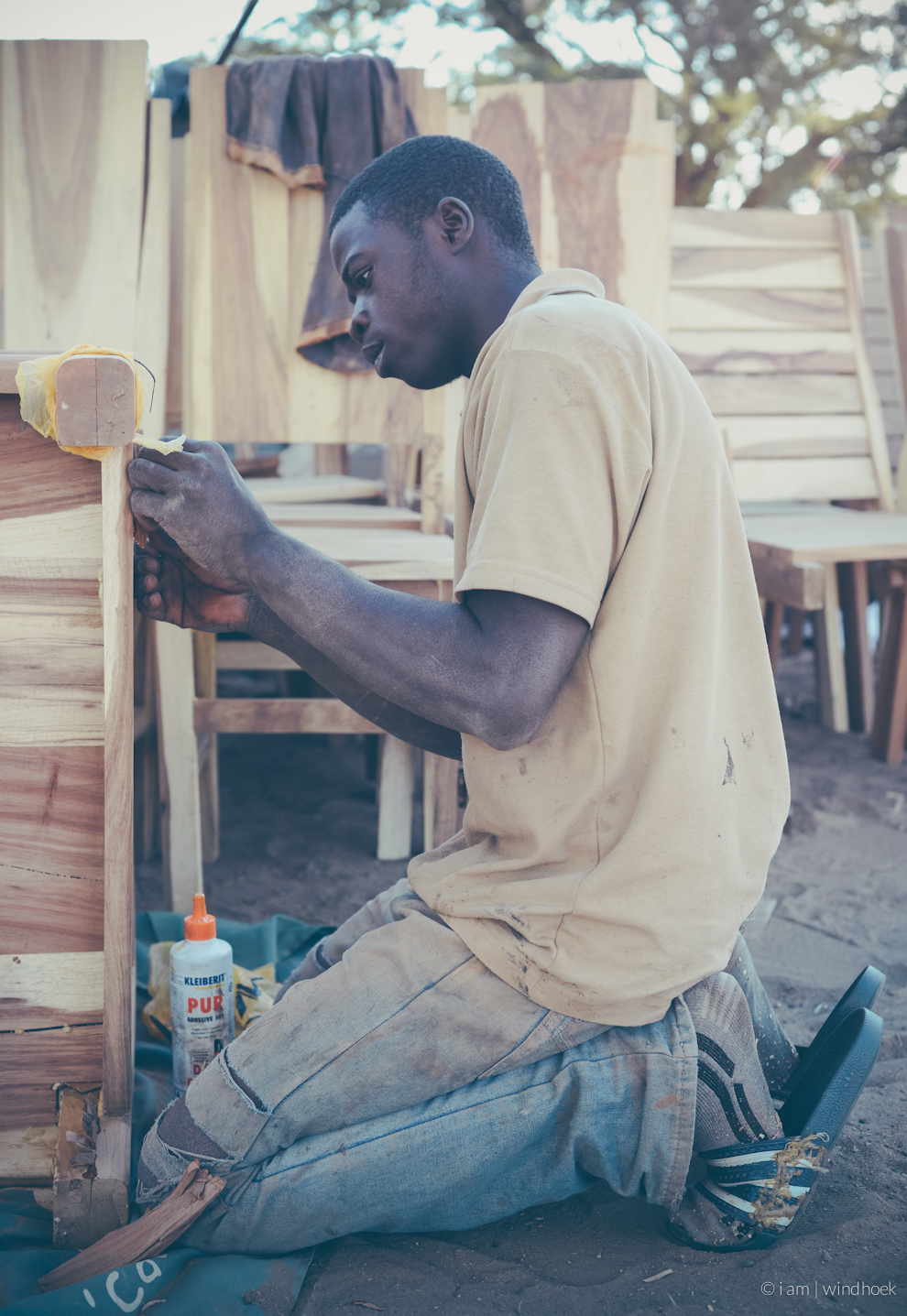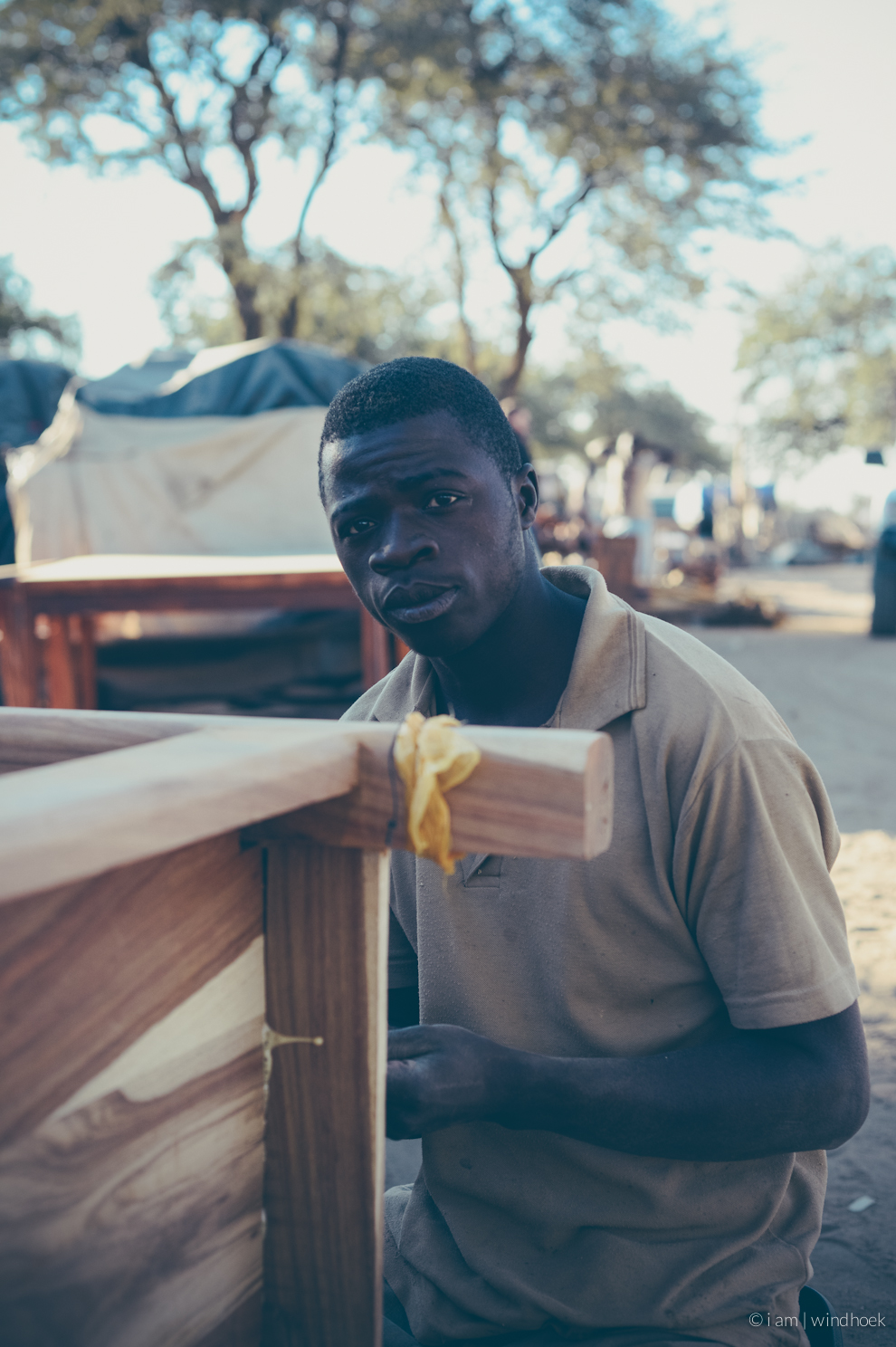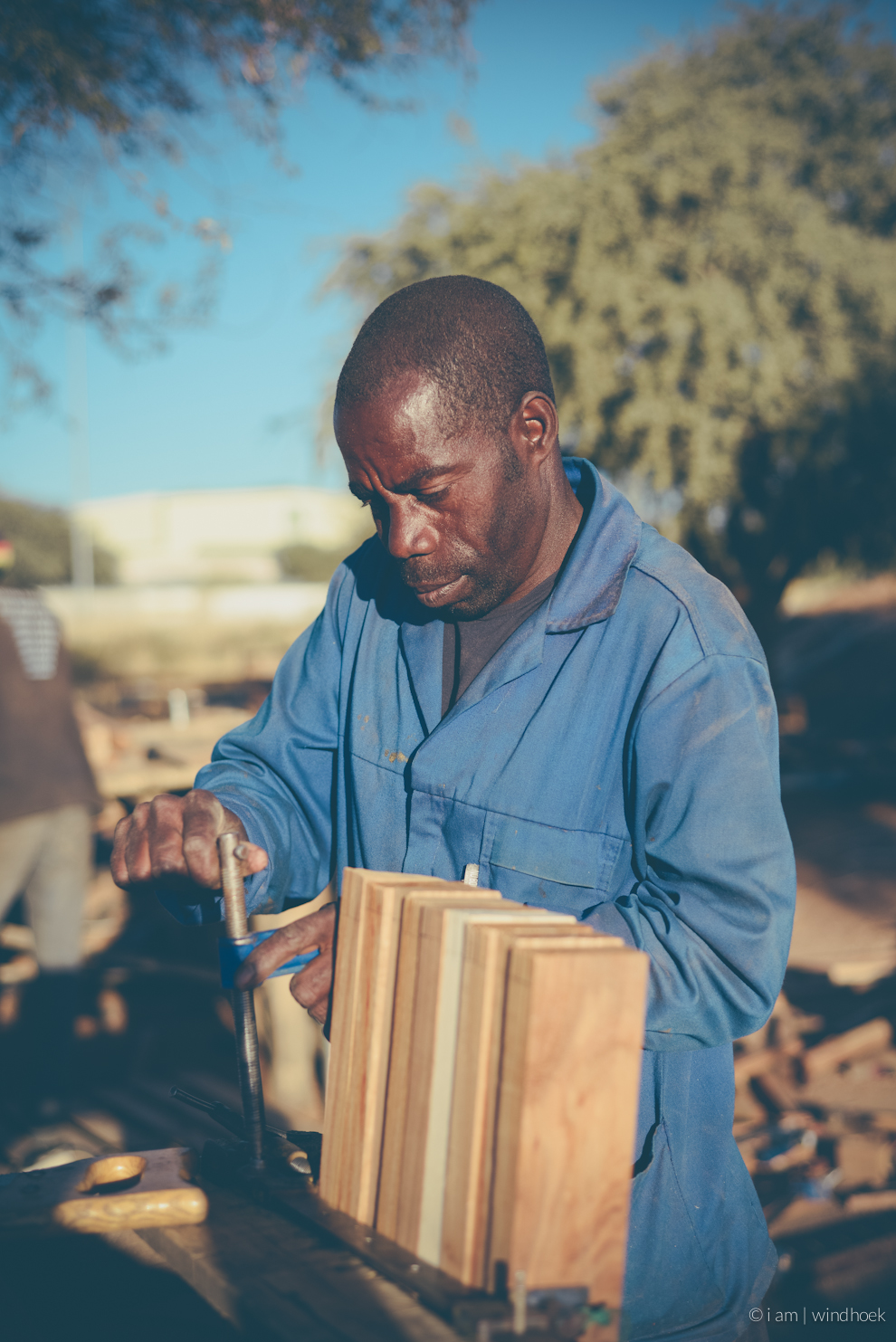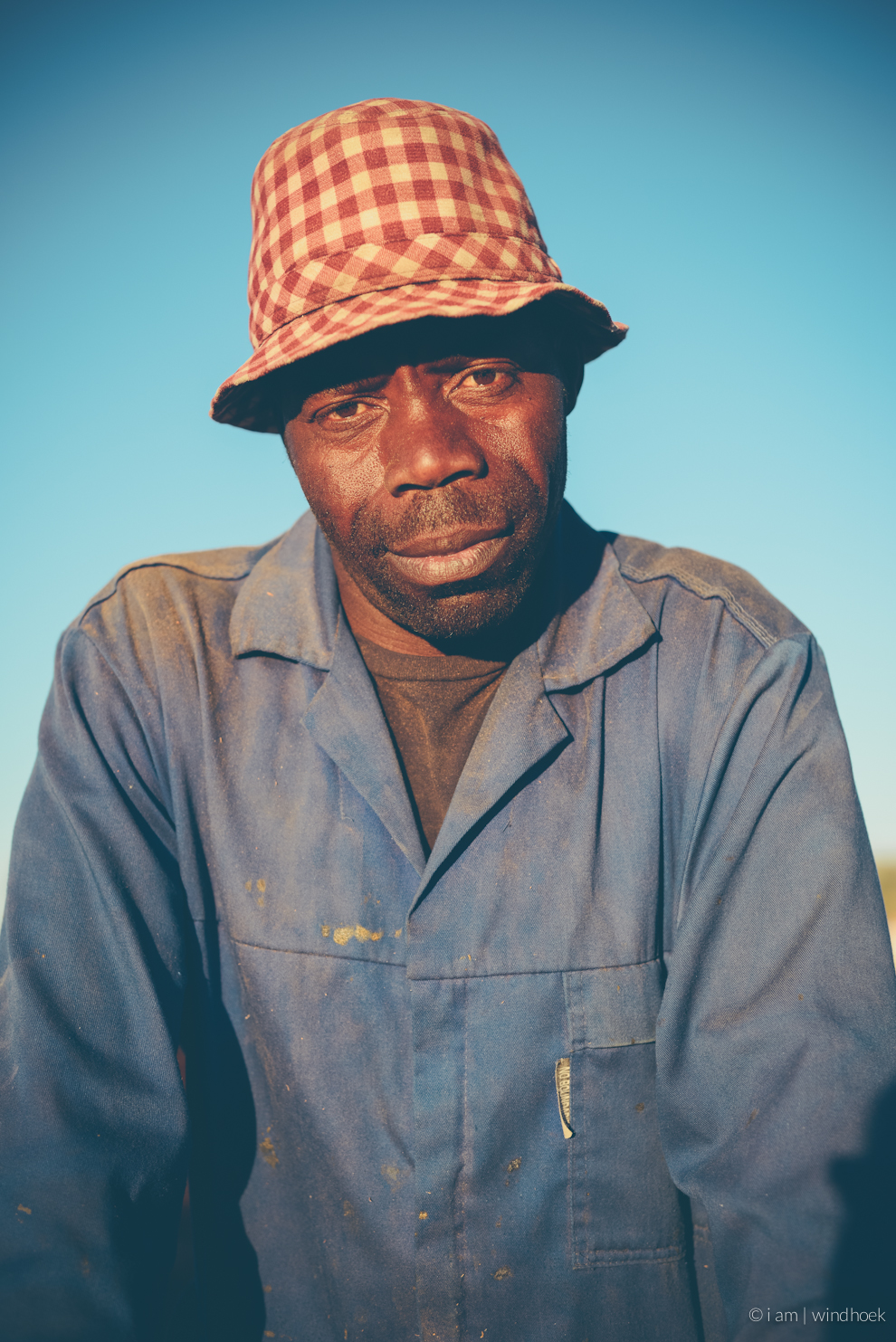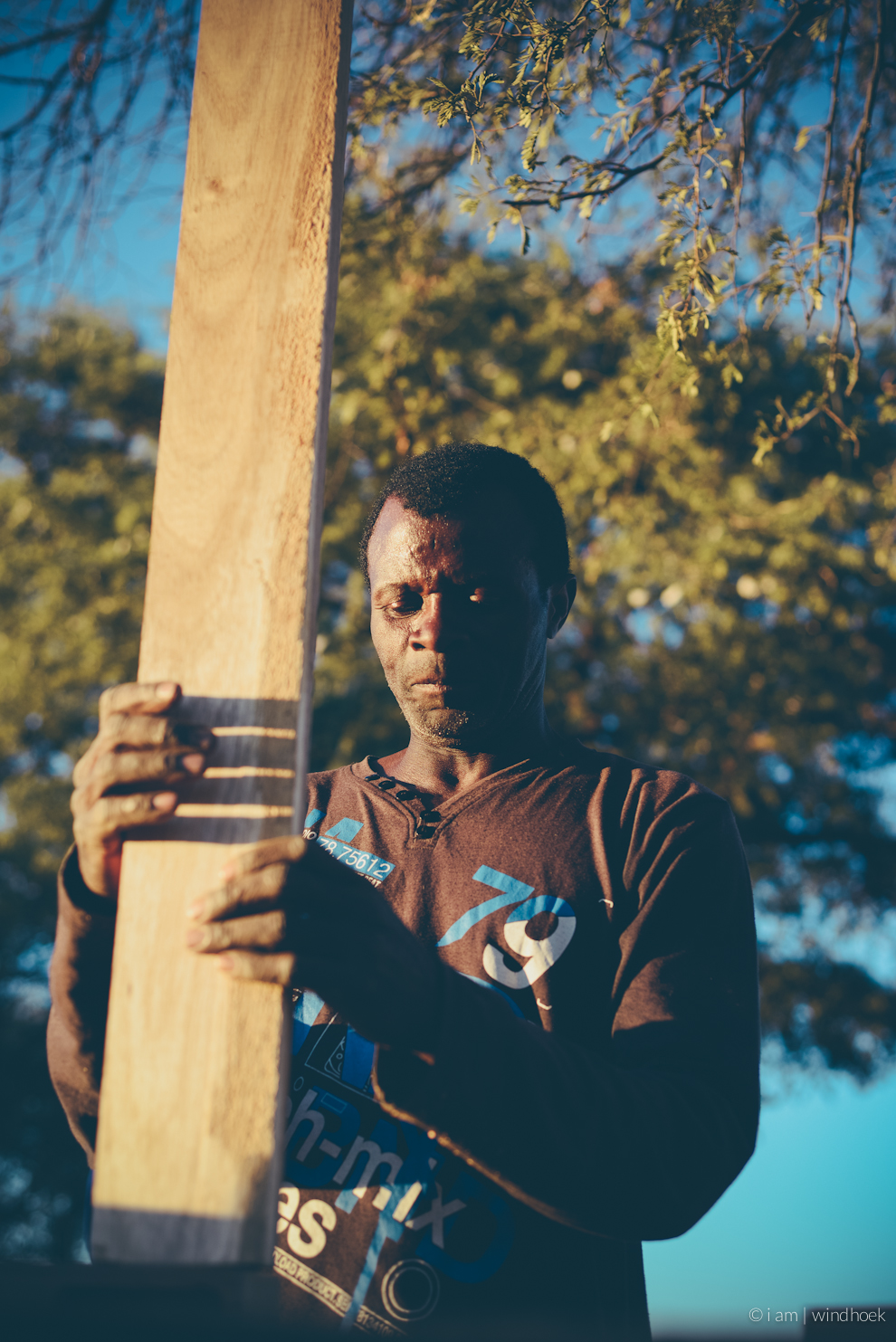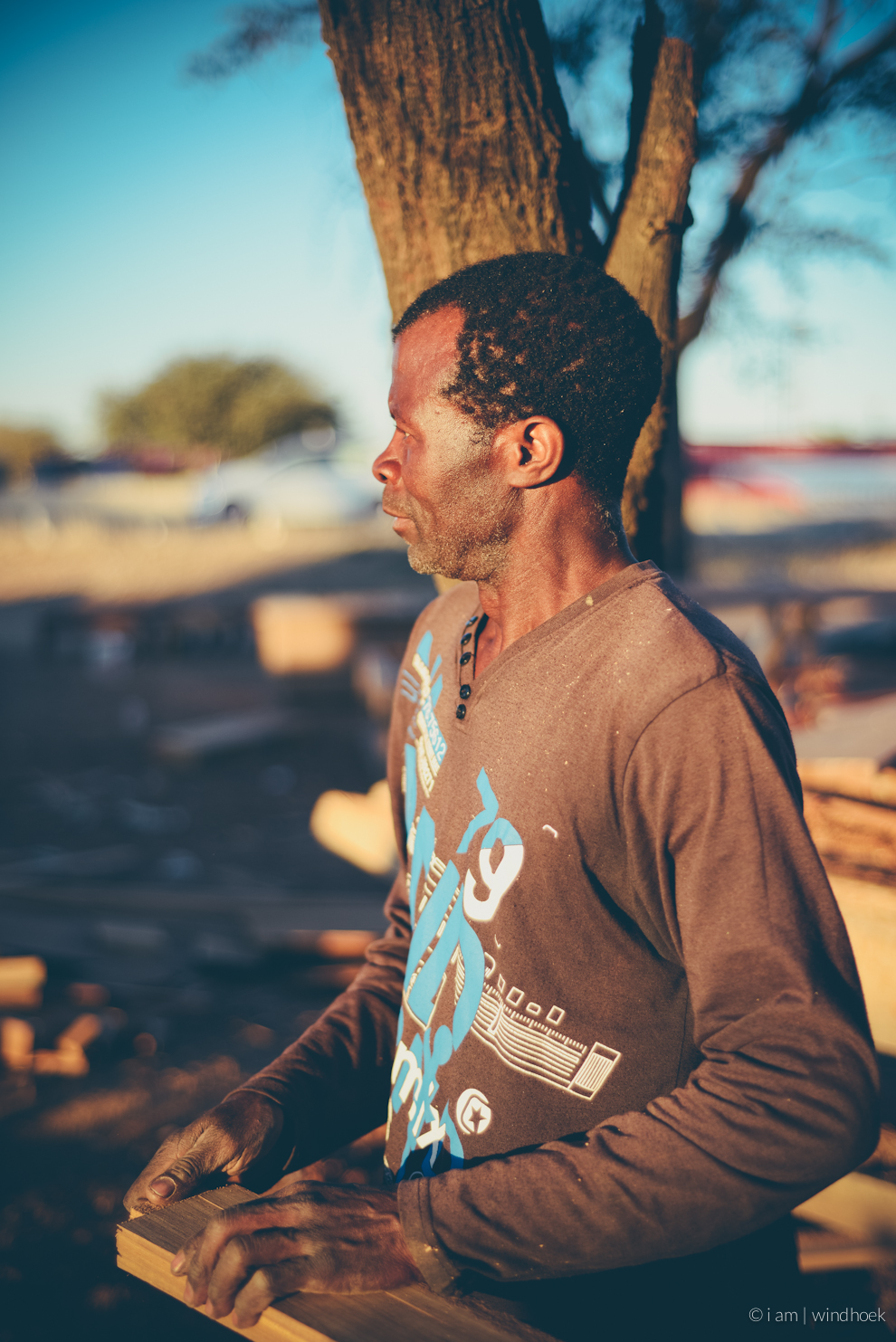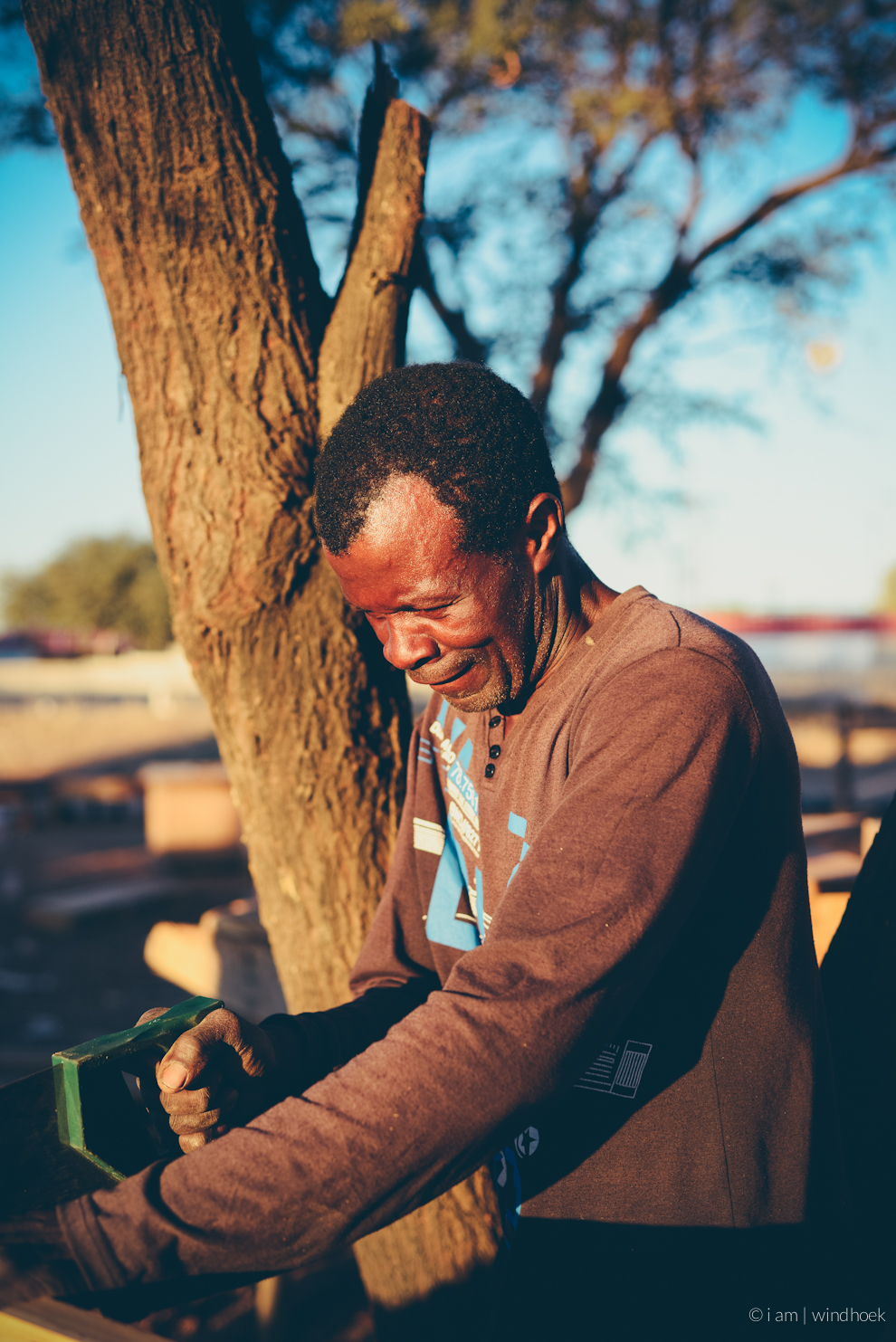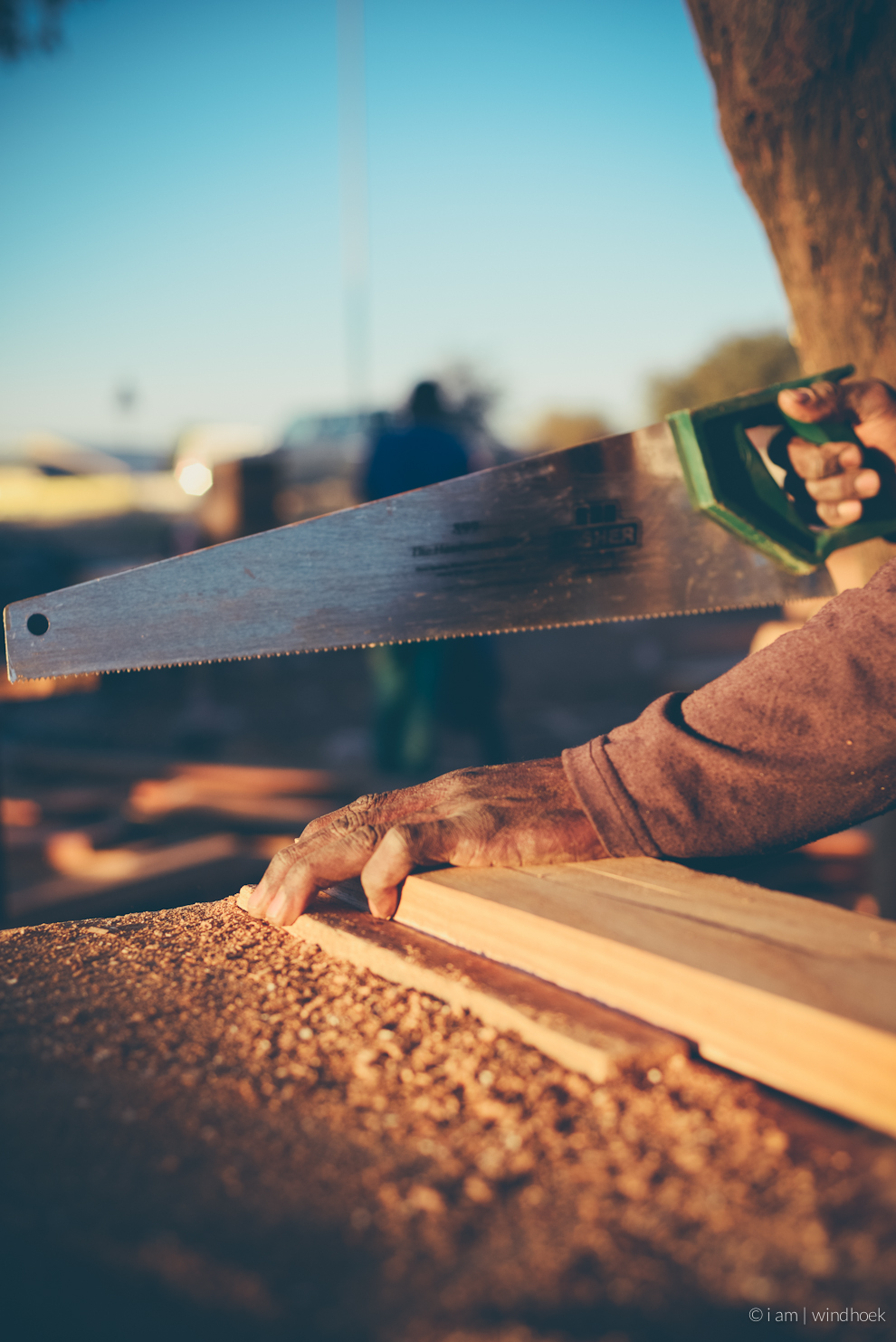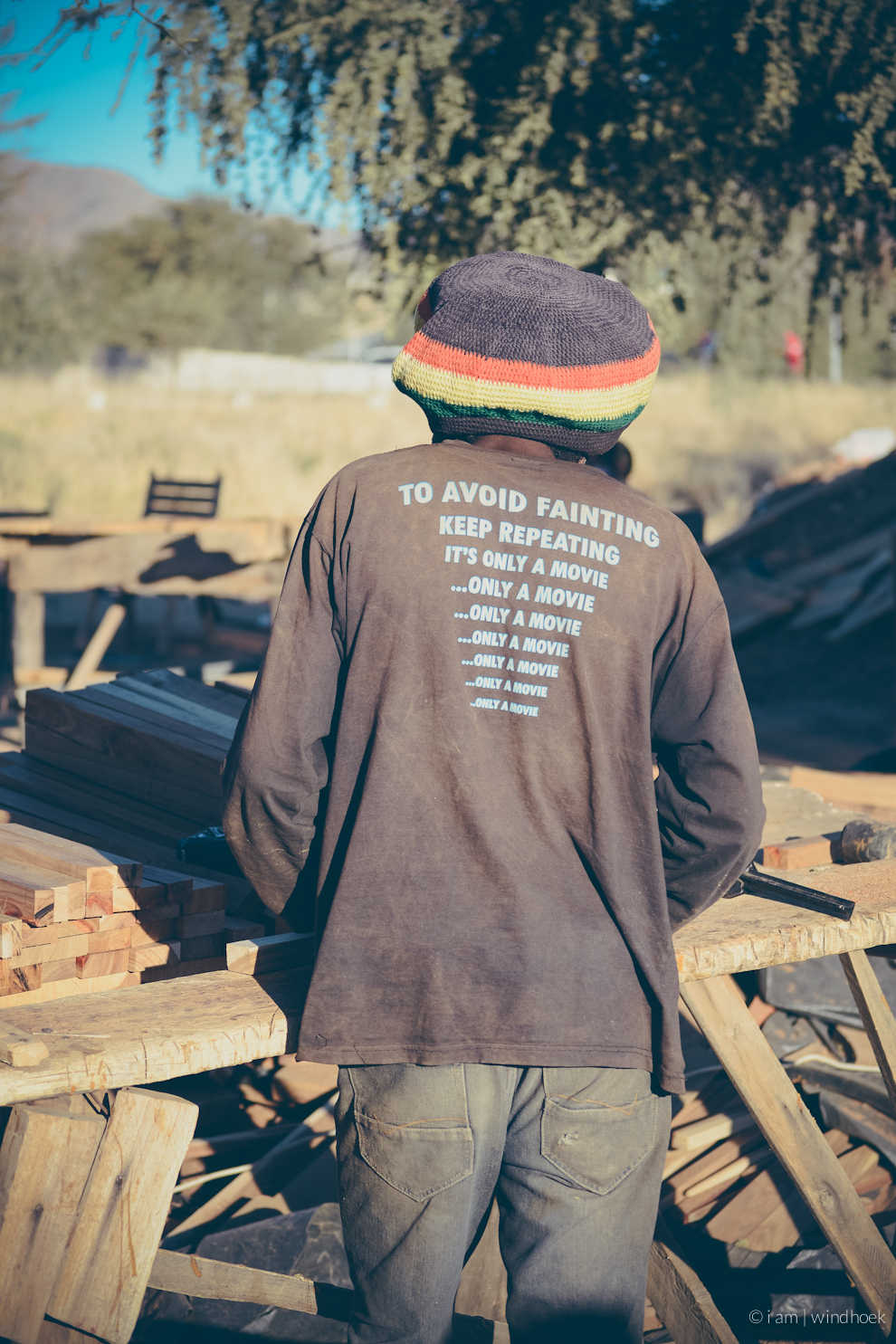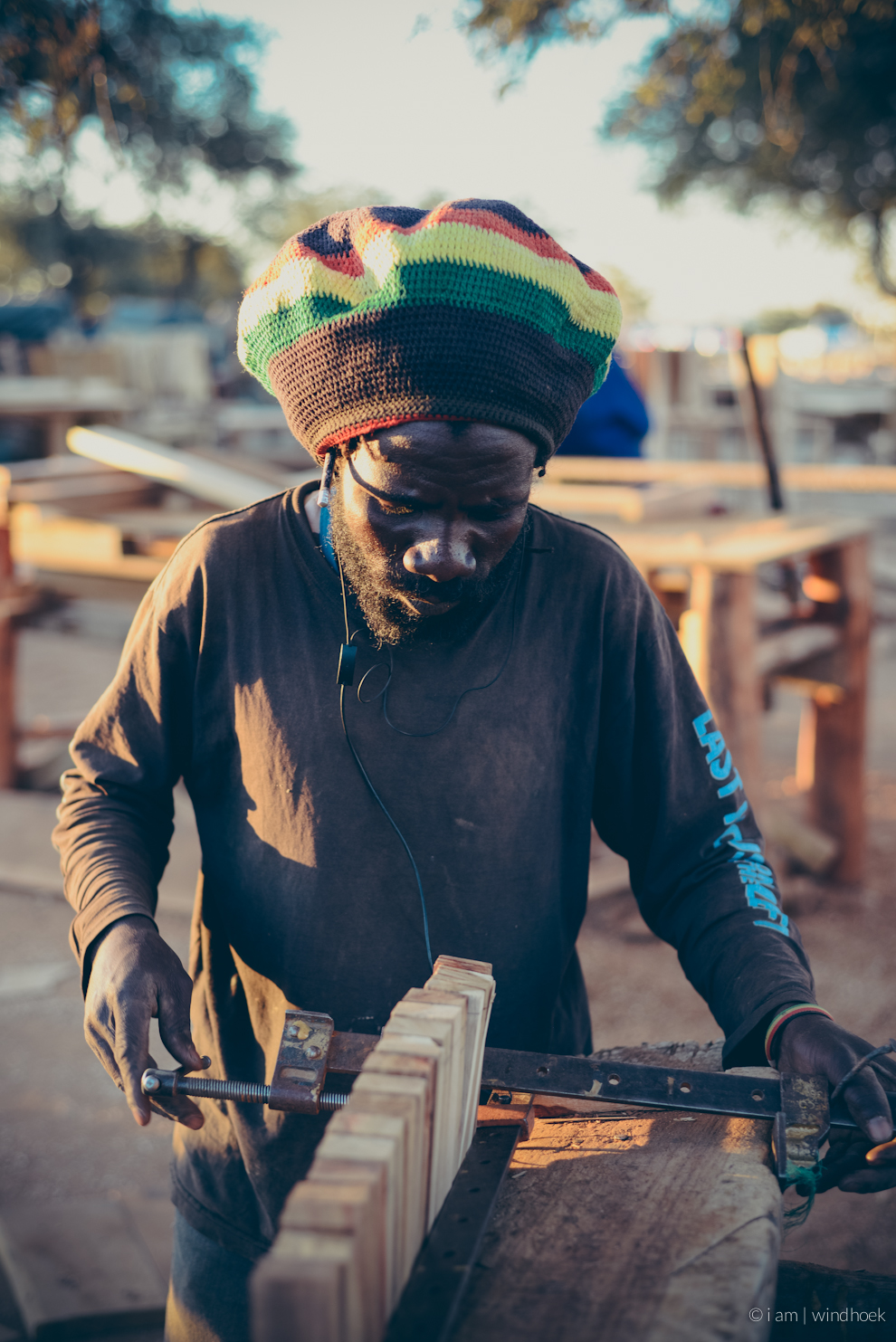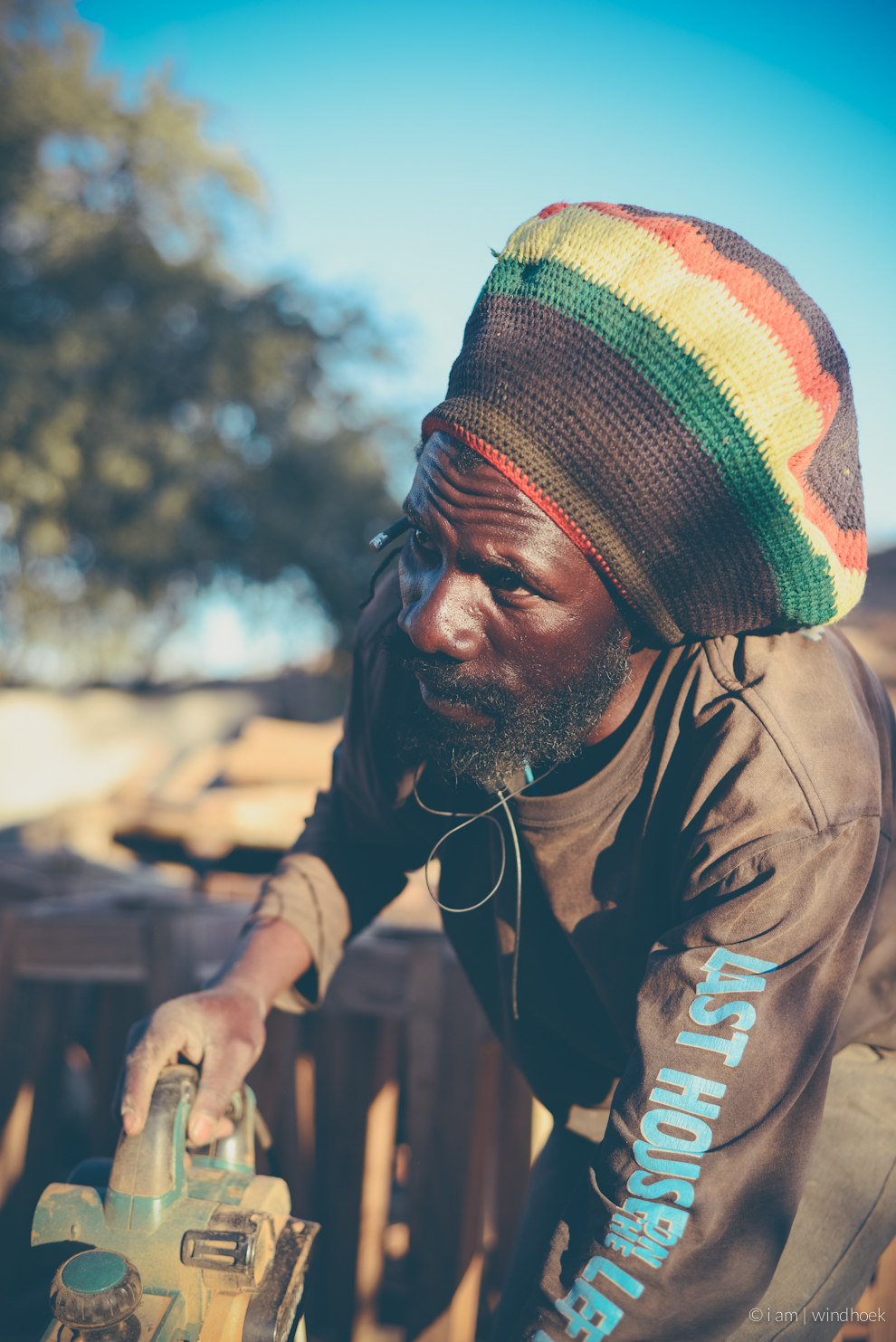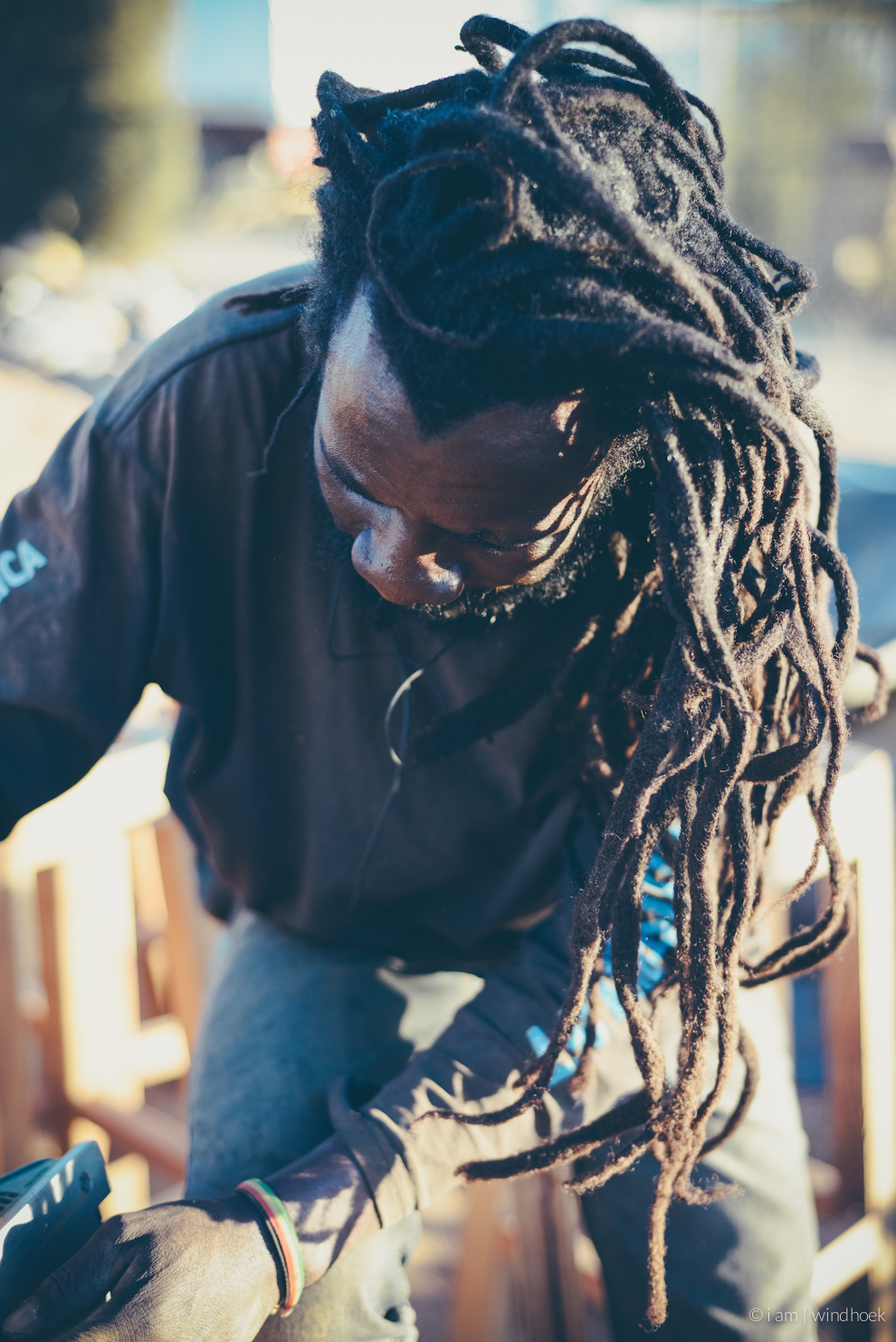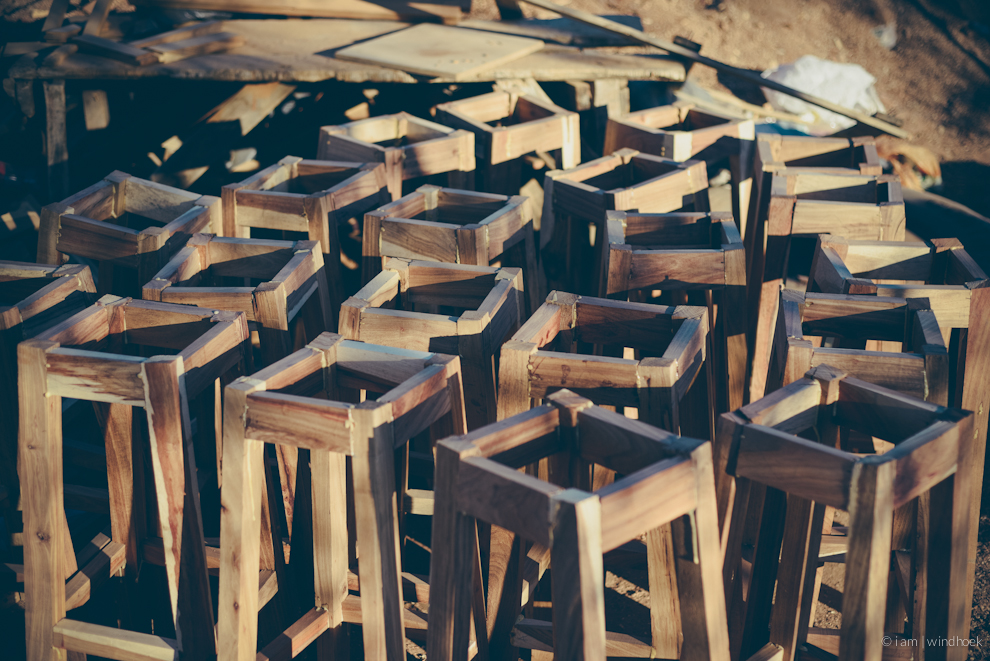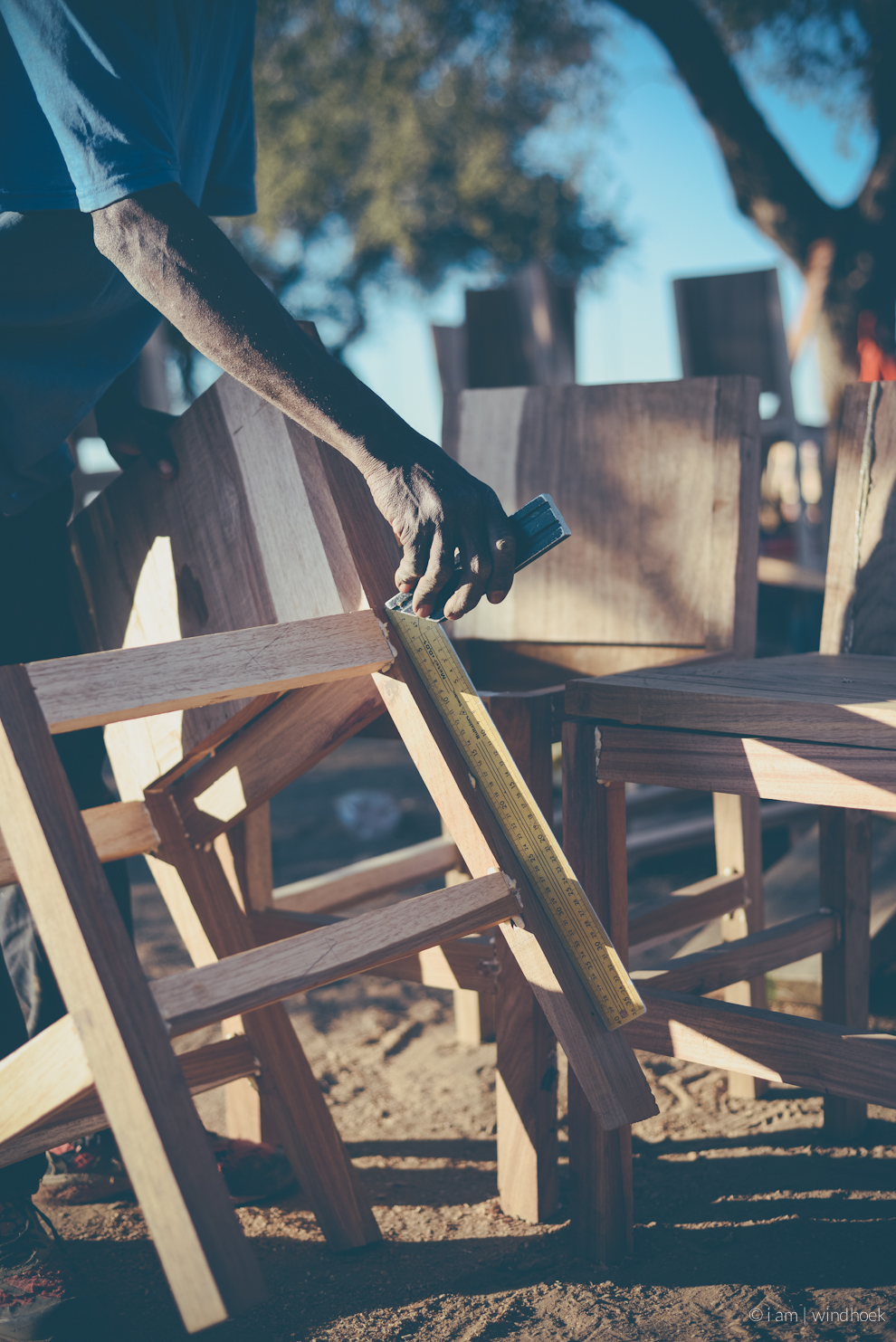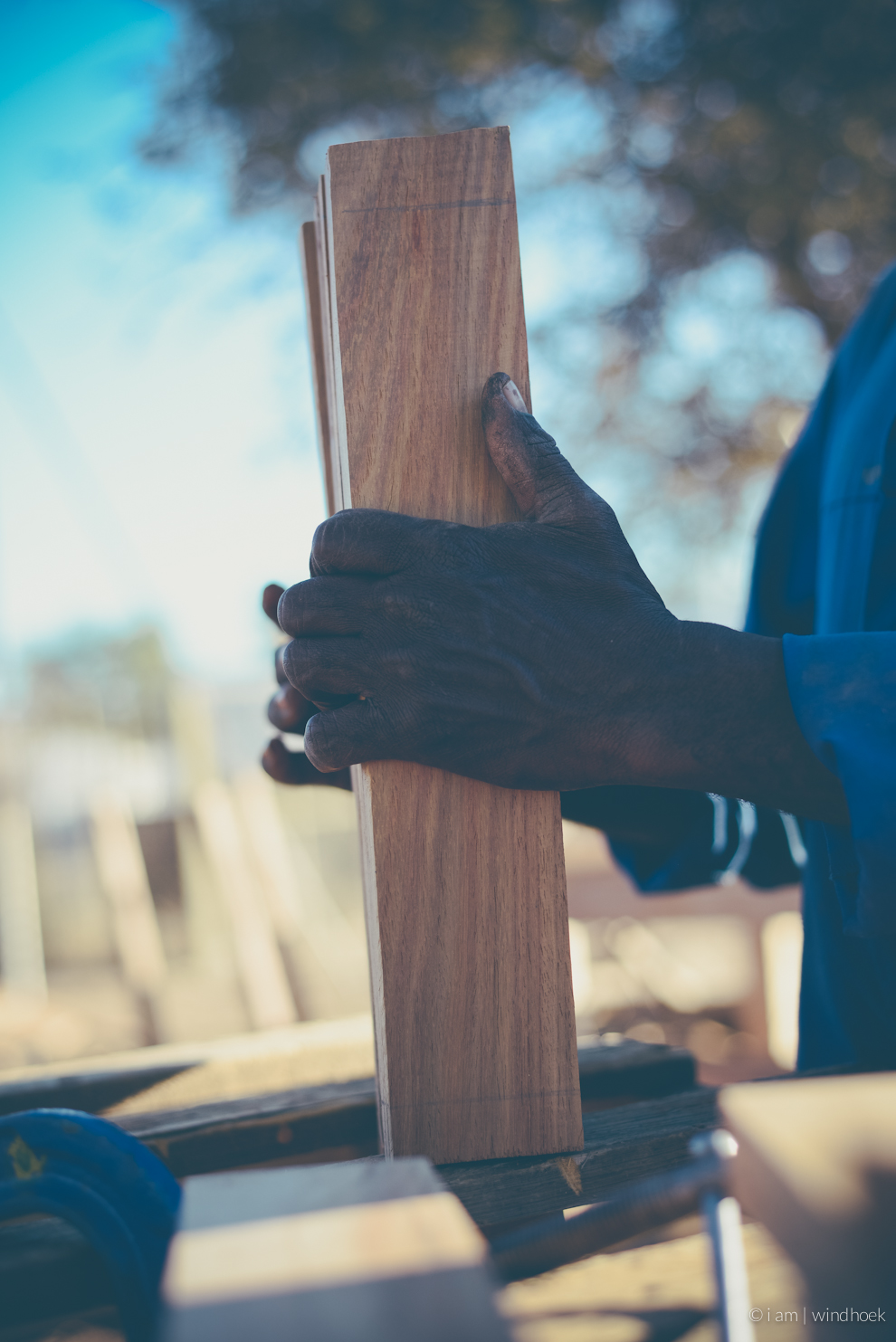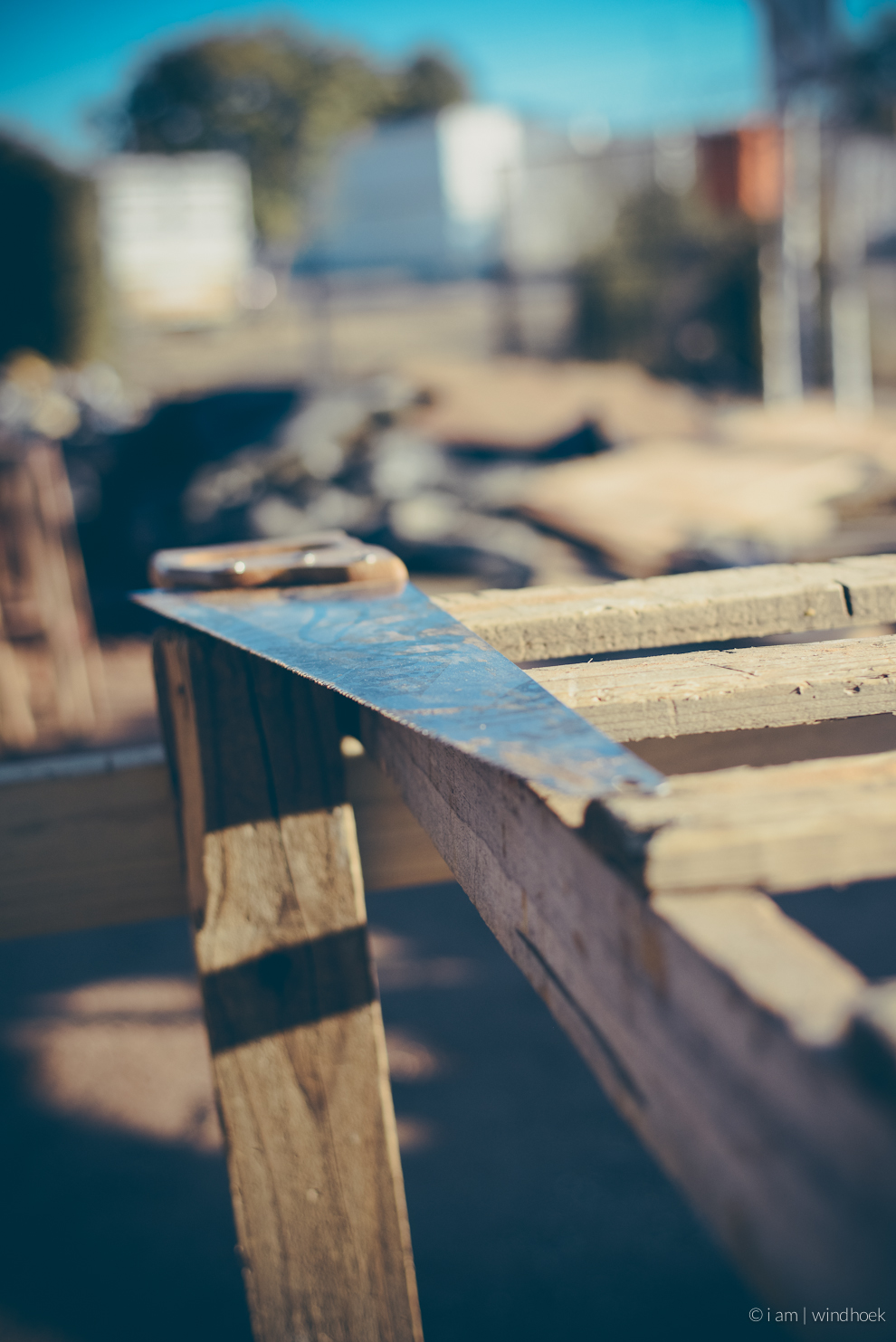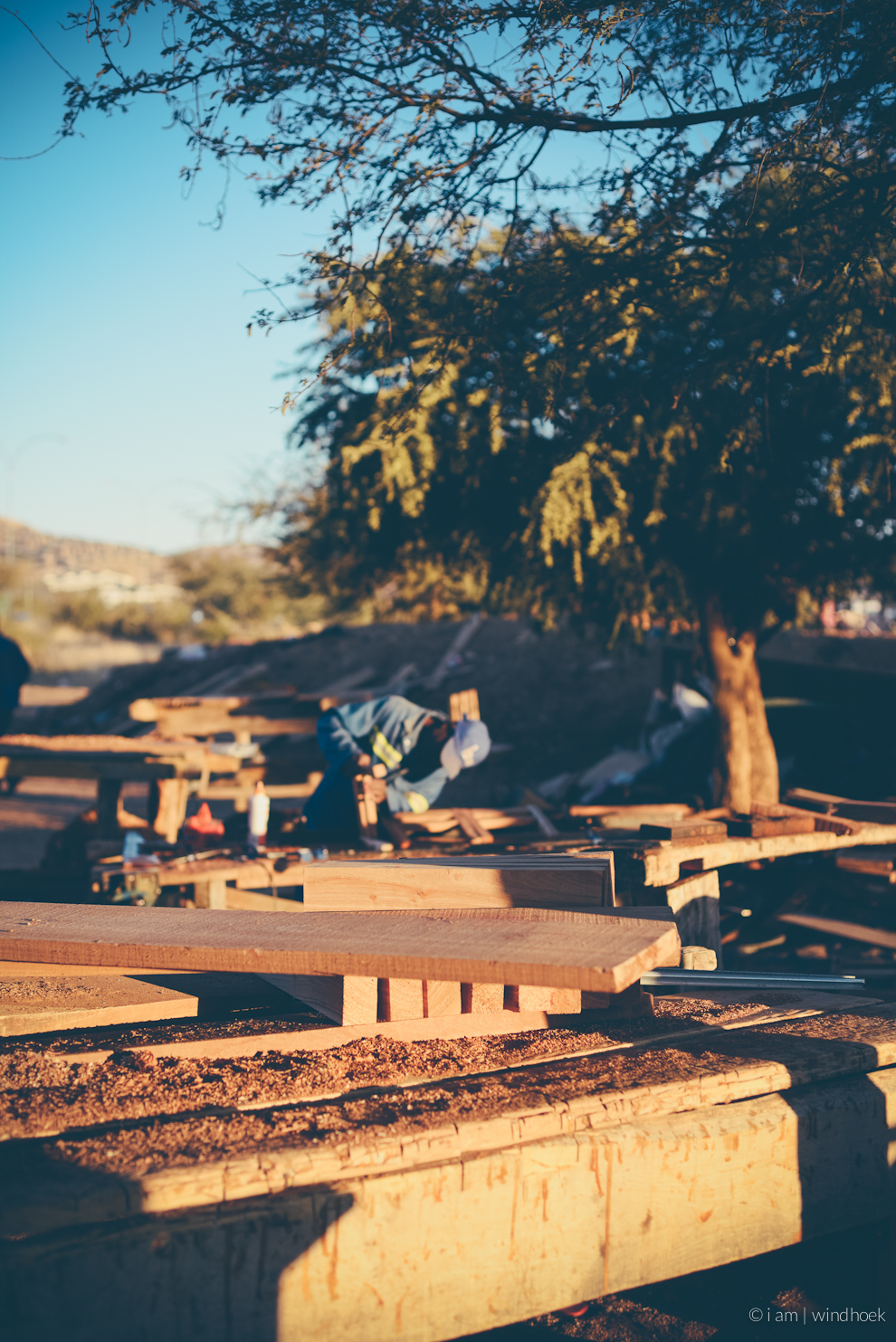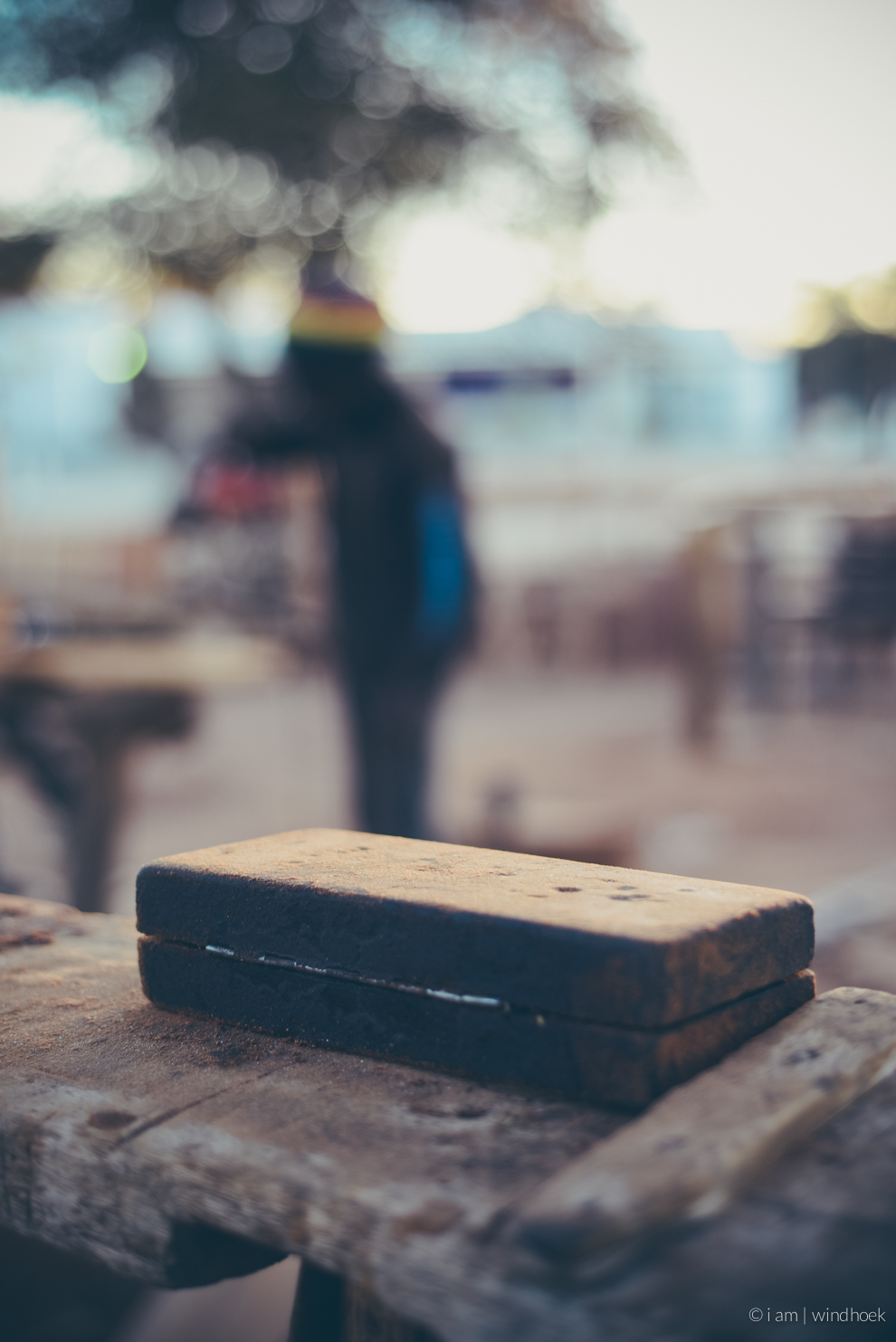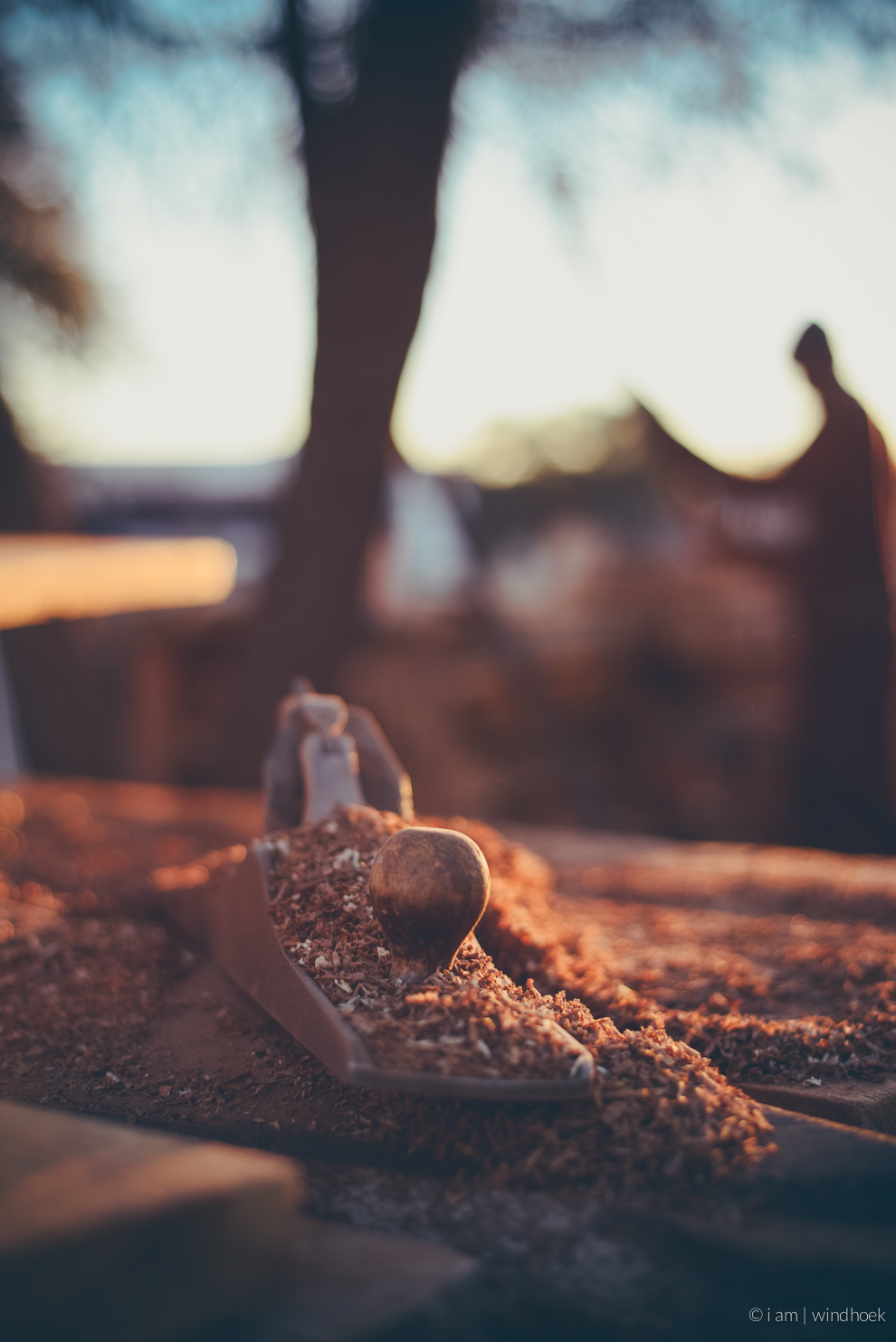From sunrise to sunset, through the spring, summer, autumn, and the cold, punishing winter, on Auas Road, out in the open, working with nothing more than a diesel generator to power the tools they need to ply their trade and sell their art, live Windhoek’s woodcarvers. Their workshop is laid out underneath a couple of Acacia trees which provide occasional shade depending on the angle of the sun. On the day I visit them, nature has set the air-conditioning to hot and sweaty. A thin breeze pants through the hammering and sanding and then beats a hasty retreat out of the stifling atmosphere.
Most of the men measuring, cutting, fitting, and grinding wood hail from the Kavango region in northern Namibia but some are from Windhoek. One is from South Africa. All of them are citizens of one nation: woodcarving and carpentry.
They turn wood into tables, chairs, bar stools, shelves, cupboards, and almost anything else they are requested to do. They fulfil bulk orders for game lodges, guest houses, and hotels; and, for once-off clients such as me they are able to make a custom writing desk or bookshelf. It is the two pieces of woodcraft they made for me that has brought us together again. I needed a place to write and store my words—they looked at my sketches and dimensions and nodded.
“Chief, this is no problem. One week.”
Seven days later, at half the price I would have paid if I had visited one of the city’s furniture shops, I was sitting and writing at desk large enough to comfortably hold my laptop, and an array of notebooks, sketchbooks, and pens. The bookshelf is a warm and stylish zoo of my eclectic collection of classic and contemporary literature.
When last we parted I promised them I would return with my camera and my words.
So here I am. In the late afternoon sunshine, traffic zooms on the road behind me; wood chips and shavings fly in all directions in front of me.
Today, when I meet with them, they are battling to make up for lost time caused by their diesel generator’s failure that morning. They are also fighting the quickly fading winter light. By five o’clock night will descend and they will have to make their respective ways home, leaving some of their number behind to guard the merchandise and the tools.
The men have families and homes in the furthest neighbourhoods in the north of the city—in Katutura, in Otjomuise, and Hakana—but they commute across town every day before the sun rises to their dusty, open-air workshop on the tail-end of Windhoek’s south side.
When it rains, in the summer, work comes to a stand still. As soon as the skies clear they pick up their tools and continue where they left off. Many a Facebook status or Instagram post will proudly proclaim the person behind the phone is ready to rise and grind. For these men, rising and grinding is a way of life. No filters.
They sell what they can, stockpile what they cannot—they line the sidewalk of Auas Road with furniture and woodcarvings waiting for buyers.
As I walk around the the workshop, camera in hand, trying not to intrude on their labour, a bakkie pulls up. A tall gentleman steps out. The carpenters temporarily put down their tools and size up the potential customer. The man walks up to furniture on display and casts his eye over some tables.
The head carpenter, Oscar, whom the others call Secretary, steps forward and greets the man in Afrikaans.
“Middag, good afternoon.”
“Middag,” the other man says.
They exchange a couple of words. Secretary leads him around the workshop, quoting prices. The gentleman points at a long table. They haggle. Namibian dollars are rolled out and counted. They make their way from the gentleman’s hands into Secretary’s, who then humbly bows his head and puts the crisp notes in his pocket.
Secretary and the man shake hands. The driver climbs back into his car and heads back to the city centre.
Secretary comes back with a smile on his face.
A sale.
The rest of the team goes back to sawing and cutting.
Rough, leathery, weathered, calloused—a handshake with any of the carvers lets you know their hands are all business. It takes hands of steel to start working the wood into a desired shape. Their hands, though, are transformed as soon as they start handling their finished products. They become graceful, and caress the wood, teasing oils into the smooth wood to protect it from moisture and insects. It takes gentle hands to turn dead wood into living art.
The senior-most carpenters have been working with wood for more than 30 years, honing their craft, sanding the flaws out of their work almost every day. They look at their work with critical eyes, picking out imperfections in the wood or their own workmanship with ease.
But amongst the hubbub, a young face appears. Twenty-two years old, the son of a senior carpenter who has been working with wood longer than his son has been living. The carpentry roots run deep in his family. He has the task of sanding and planing tables and chairs, polishing and waxing. Occasionally, he gets to assemble something. The apprentice’s job.
What would be mundane tasks to some people will get him to smile when he talks about his work. He enjoys working with his hands. He says he sanded and oiled my table.
“Two days,” he says. “I sanded it for two days. And then another day to oil and dry it.”
But for the noise from passing traffic, the outdoor workshop is absent of other noise besides the sound of saws and hammers. There is no time for conversation as the carpenters work to meet orders. There are no dragged out brainstorming sessions, no water-cooler conversations, no sly snoozes on the couch. Everyone is focused on the task that is set before them.
This is a place of work, of output.
Upon first approach, the carpenters look grim. Their dark faces are shiny with their sweat, and their hair is full of sawdust. They look like the wood with which they work: hard. But if you stick around long enough, keep out of the way, and keep your words and distraction to a minimum, a different side of them emerges. They smile and share jokes when they take a break. They are all bark, no bite.
Underneath they are shy, trying to stay out of my camera lens’ focus. The Rastafarian often teases the young apprentice; Secretary bursts into a working tune that is picked up by the other carpenters. They sing for a minute, working to its rhythms. The song ends but the men continue their rough and delicate work.
Every once in a while someone shouts something to someone else—in this case, I am the butt of an inside joke—and everyone joins in a small whirlwind of laughter and conversation. It carries on for about five or ten minutes before Secretary shouts a command for everyone to get back to work.
The waiting orders will not fulfil themselves.
i am | the hands that do the work
i am | the craft, respected, perfected
i am | the grind
